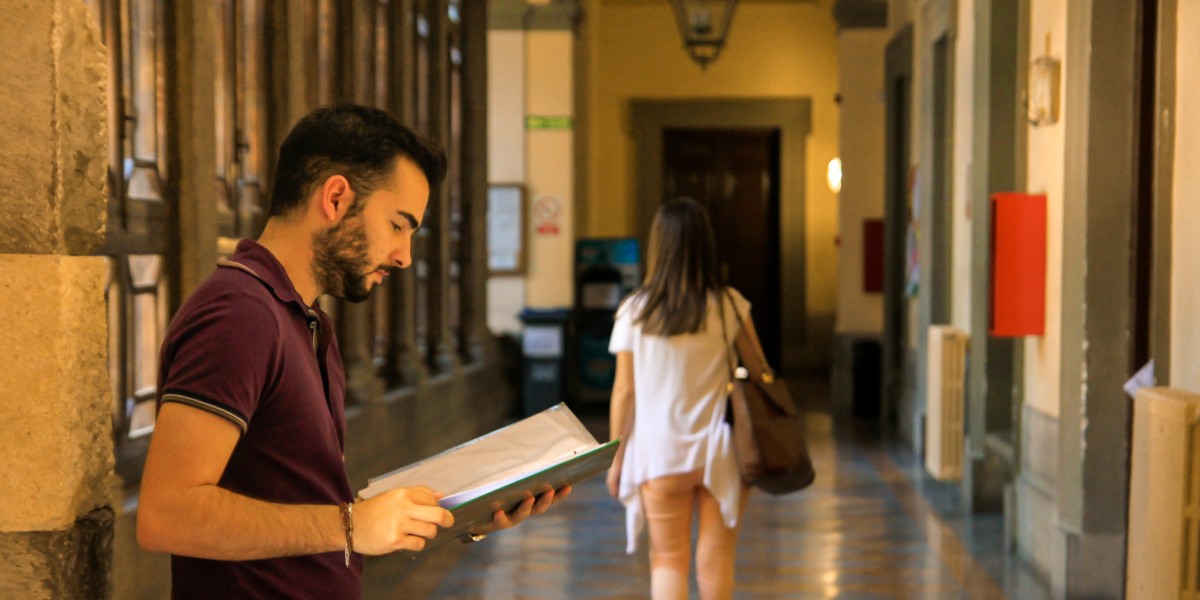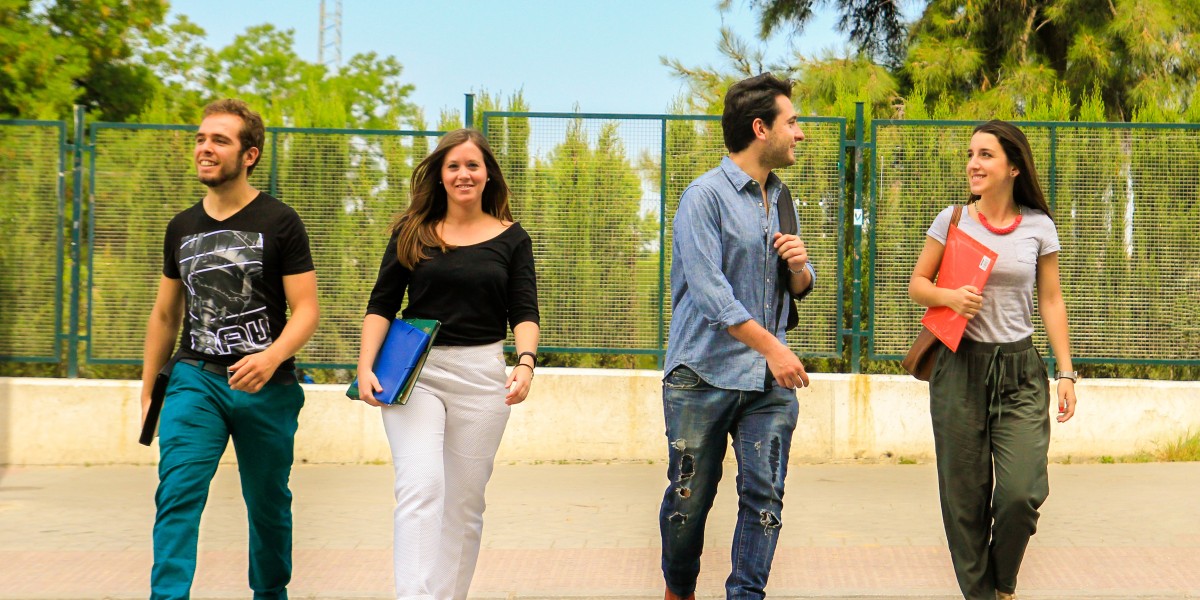
Studying in Spain isn’t just about attending lectures – it’s about living somewhere with real energy and a pace of life that lets you enjoy both work and play. Each year, Spain draws in roughly 80,000 international students. What you get here isn’t just a university degree, but a daily taste of a culture built around sociability and creativity.
But it’s not just about sunshine and making new friends when you study in Spain. Spain’s universities specialise in areas you won’t always find elsewhere. There's a strong focus on architecture and design, leading research in renewable energies, business and economics with a global outlook. You'll also find programmes in hospitality, gastronomy, and tourism reflecting the country's world-famous food scene and tourism industry.
Why study in Spain?

Opting to study in Spain means getting more than just a qualification. You join a rich academic community with centuries-old traditions and a modern outlook. It's no surprise the country is a hotspot for international students, especially young Americans looking to study in Spain.
Many courses are open to international students in English, removing any language barrier worries. And if you fancy picking up Spanish along the way, daily life and plenty of university-run language exchanges make it easy to improve fast.
What also sets Spain apart is how affordable it is compared to much of Western Europe. Tuition fees at public universities are often far lower than what you’d find in places like the UK or the US. Day-to-day expenses – from fresh produce at the market to nights out with friends – won’t break the bank either.
How much does it cost to study in Spain?

Tuition fees vary depending on your nationality (EU or non-EU), the university (public or private), and the degree level. As of 2025 (check university websites for the latest figures), tuition fees for EU students at public universities typically range from around €750 to €2,500 per year for undergraduate degrees.
International students can expect fees between €2,000 and €6,000 per year, although prices can be considerably higher for prestigious programs, MBAs or degrees at a private universities where prices can reach as much as €20,000 a year.
Living costs in Spain vary by city, but budget around €800-€1,200 per month for accommodation, food, transport, and entertainment.
Studying in Spain in English
Many universities now offer English-taught programs, especially at the Master's level, catering to the growing international student population. You can find English-taught degrees in fields like Business Administration, International Relations, Engineering, and more.
How to study in Spain for free (or cheaply)
Several scholarship opportunities can help fund your studies:
- Erasmus+: This EU program offers grants for student exchanges within Europe.
- Spanish Government grants: The Spanish Ministry of Education, Culture and Sport offers various scholarships for international students.
- University-Specific scholarships: Check with your chosen university for potential scholarships.
Requirements to study in Spain

If you’re coming from outside the EU and planning to study in Spain for more than 90 days, you’ll need to apply for a student visa (visado de estudios) before you arrive. Here’s what you’ll need and what this visa allows:
What you need to apply for a Spanish student visa
- Official letter of admission from a recognised Spanish university or educational institution, confirming your enrolment and course details
- Valid passport (with at least validity through your intended stay)
- Completed visa application form (available from the Spanish consulate or their website)
- Passport-sized photographs as specified by the consulate
- Proof of financial means (such as recent bank statements, scholarship letters, or proof that your parents/guardians can support you), showing you have enough to cover living expenses and tuition
- Proof of accommodation in Spain (rental contract, university halls confirmation, or invitation from a host)
- Medical insurance covering your full stay in Spain
- Medical certificate confirming you’re free of any diseases that could be serious for public health
- Criminal record certificate (from your home country and any place you’ve lived long term in the past 5 years)
- Visa fee payment (amount varies by country and consulate)
Some consulates may request translations into Spanish or officially certified documents. Most require you to present originals plus a set of photocopies. An interview at your local Spanish consulate is usually part of the application process, so make sure your documents are well prepared and organised.
What your student visa allows
A Spanish student visa covers:
- Full-time studies (minimum 20 hours per week) at a recognised Spanish institution, in a programme that results in an official diploma, degree, or certificate
- Doctoral programmes
- Traineeships (prácticas) or internships (including those not classified under a dedicated internship visa), as long as they're linked to your studies
- Participation in volunteer programmes with projects recognised by Spanish authorities
- Secondary school exchanges, teaching assistant positions, or “au pair” schemes
While you’re on a student visa, you’re allowed to undertake paid internships or part-time work, though work is limited (usually up to 30 hours per week, and your studies must remain your main activity).
Always double-check study visa details and any updates on the Spanish Ministry of Foreign Affairs website or information provided by the Spanish Service for the Internationalisation of Education (SEPIE) with your local consulate, as requirements can change or vary slightly by region and nationality
What subjects can I study in Spain?

Spanish universities follow the Bologna Process, offering Bachelor's (Grado), Master's (Máster), and Doctoral (Doctorado) degrees.
Popular fields among international students include Business Administration, Engineering, Tourism Management, and Fine Arts. Many universities offer specialised Master's programs in fields like renewable energy, data science, and digital marketing. Look at specific university websites for program details and curriculum information. Another option is learning Spanish in Spain, either for a semester, through an immersion programme or as preparation for a university degree.
Student accommodation in Spain
Most students in Spain go for one of three options: university halls of residence (known as colegios mayores or residencias universitarias), private student residences, or renting in the private market. Halls tend to be social, and you’ll often get meals and cleaning included, but they can be pricier and a bit stricter about guests and curfews. Private student halls are springing up in bigger cities, sometimes run by international brands, though you may pay a little more for added comfort and events.
Flat sharing as a student in Spain
Living in a shared apartment is by far the most common route, especially after your first year. It’s the best value, more independent, and means you’re living with Spaniards or other internationals. Rents vary a lot. In Madrid or Barcelona, a room in a shared flat might set you back €400–€600 per month, while in student cities like Granada or Valencia, you can often find something closer to €250–€400.
Finding a room can be daunting if you’re not already in Spain. But, idealista's online booking service—available with or without insurance—means you can secure your room or apartment before you arrive in Spain. This is a real bonus if you want to avoid the chaos of last-minute flat hunting, or if you’re looking for peace of mind about your deposit and contracts. The insurance option gives you extra protection in case things don’t match the ad, so it’s worth considering for first-timers.
Best places to study in Spain

Picking the right city genuinely shapes your student experience in Spain, with each place offering something a bit different beyond academics.
Madrid
Madrid is Spain’s nerve centre for culture and nightlife, but it’s also got a down-to-earth side. Most students live around Moncloa or Malasaña—both packed with cheap cafes and buzzing at all hours. The Complutense University of Madrid is a classic choice if you’re into humanities or social sciences, while the Autonomous University of Madrid stands out for natural sciences and research. Madrid’s metro is efficient, so don’t dismiss more affordable neighbourhoods on the city’s edge.
Barcelona
There's more to student life in Barcelona than Gaudí’s buildings and days at the beach. Barcelona is ideal for creative types—whether that’s design at Universitat Pompeu Fabra or humanities at the University of Barcelona. When studying in Barcelona, expect a big international crowd, and lively student neighbourhoods like Gràcia or El Raval brimming with music, independent cinemas, and quirky bars.
Valencia
Valencia feels a bit more chilled than the heavy hitters up north. It’s perfect if you want Mediterranean weather, cycling to class, and grand festivities like Las Fallas. The University of Valencia is one of Spain’s oldest, while the Polytechnic University of Valencia is known for its engineering and art degrees. Student flats are often in the lively Benimaclet area, and compared to Madrid or Barcelona, your rent goes further.
Seville
If you love history and want to soak up real Andalusian life, Seville’s your best bet. Life here moves at a slower tempo—think long lunches, late-night flamenco, and orange trees lining the streets. The University of Seville is famous for law, architecture, and arts. Triana and Alameda are the go-to student zones, with plenty of tapas, live music, and weekly markets.
Granada
Studying in Granada combines mountain views, a huge Erasmus scene, and some of the most affordable tapas in Spain (often free with your drink). The University of Granada is respected for humanities, translation, and computer science, and its international student population is massive for the city’s size. Albaicín and Realejo have a real local feel—perfect for exploring Arab-influenced streets and sunset viewpoints over the Alhambra.
Is studying in Spain worth It?

For most international students, Spain turns out to be far more than just an academic decision. Living here means learning in a relaxed, sociable environment where daily life matters as much as what you do in the classroom. You’ll come away with sharper language skills, a stronger CV, and friendships that often outlast your degree. Between the open plazas, lively student districts, and a calendar filled with fiestas, it’s easy to feel at home. If you’re looking for good teaching, genuine community, and the kind of experiences you just don’t get elsewhere, Spain usually delivers—without fuss or fanfare.
